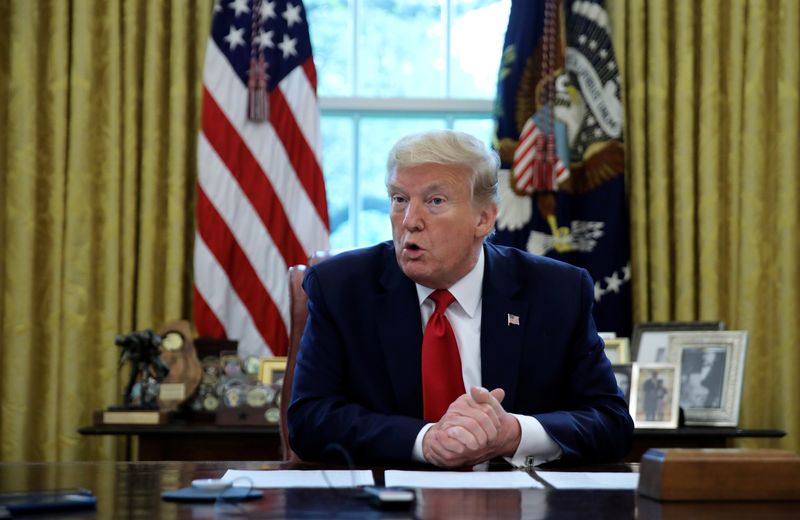By Ankika Biswas
(Reuters) - As investors the world over brace for a global trade war with U.S. President-elect Donald Trump returning to the White House next week, several economists and strategists believe his proposed hefty tariff hikes could well be a negotiation tool.
Even as China remains at the forefront of that risk, the consequences for global trade may not be as severe as is being currently priced in, they told the Reuters Global Markets Forum (GMF).
"According to what (Trump) had done during the previous term, tariff hikes could end up being a negotiation tactic," said Carie Li, global market strategist at DBS Bank, Hong Kong.
Trump's team is figuring out how to avoid a spike in inflation, which "makes sense to me," as inflation remains a key problem facing the U.S., Li said.
Trump has pledged tariffs of 10% on global imports, 60% on Chinese goods and a 25% import surcharge on Canadian and Mexican products, duties that may upend trade flows, raise costs and draw retaliation.
Even as proposed tariffs could destroy demand, Minxiong Liao, senior economist and director at GlobalData.TS Lombard APAC, said, "at least, it can be good negotiation tool to get a better deal with trade partners," which means not all of the planned tariffs may get implemented in the end.
The World Bank has even warned that U.S. tariffs of 10% can reduce global economic growth of 2.7% in 2025 by 0.3 percentage points (pp) if trading partners retaliate.
Tianchen Xu, senior economist at the Economist Intelligence Unit, believes the weighted average tariff rate for China could increase by as much as 20 pp between 2025 and 2027, while for the rest of the world, they won't exceed 5 pp.
China's latest plan to maintain a forecast-beating 5% growth level by going deeper into debt and even allowing the yuan to depreciate to counter the impact from tariff hikes has prompted concerns that structural problems in the world's no. 2 economy may intensify in 2025.
"Depreciation can help exports and mitigate some of the tariff impact, (but it) hurts investor confidence in the currency and the Chinese economy," Xu said, forecasting 7.5 yuan/dollar as "an absolute red line" for China's central bank in 2025. "Nobody wants to hold a devaluating asset."
If the PBOC does slightly loosen its grip on the RMB market, "USD/CNH may be at risk of testing 7.5000," according to DB Bank's Li.

The onshore yuan has fallen about 3% against the dollar, in line with weakness across major currencies, since Trump's election win in early November.
(Join GMF, a chat room hosted on LSEG Messenger, for live interviews: )